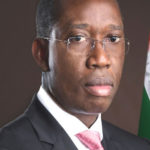Professor Timothy Olagbemiro, Vice Chancellor of Edwin Clark University, Kiagbodo, Delta State, is the chairman, Committee of Private Universities Vice Chancellors in Nigeria. In this interview with KEHINDE ADIO, he proffers solutions to graduate unemployment, crises in Nigeria’s education system, among other issues.
What is your assessment of education reform in Nigeria?
The major problem with Nigeria’s educational reform is the lack of continuity of policy. As government changes hands, the several operators also change, with each successive governments bringing in their own blueprints. So, the few financial resource available to the operators of these ministries become overstretched and inadequate to undo neither the previous blueprint nor the newly ushered blueprint. The result is stagnation and confusion.
Proof that the funding being provided by government is inadequate is here demonstrated. Out of the N52.14 trillion budgeted by Nigeria between 2004 and 2018, only N3.7 trillion (about 8. per cent) went into education. This is by far inadequate. No doubt the inadequacy of funding of the federal institution accounts for the degree of the dilapidated infrastructures on its campuses. Many of the hostels are not habitable by any standard, and the state of many classrooms is beyond redemption or repair. As a result, very few students live on campus, and where accommodation is available, the hostel rooms are overcrowded and unhygienic.
There have been calls for the federal government to extend assistance to private universities, though many believe that such would amount to using public resources to finance private concerns. How exactly can government assist private universities?
I commend the federal government for its magnanimity in allowing private universities and other institutions. I commend the several executive secretaries of the National Universities Commission who were not myopic in their approach to private universities. Let me on the other hand commend the several proprietors who have all shown their love for Nigeria and our youths. It is not easy to give your money out to a cause which future you don’t know and you can’t control either. It should be made clear here that education is a social service; and if anyone thinks he or she can make gains from the establishment of a private university, that person is wrong. I would advise he looks elsewhere. For a serious university education, you would probably strike a financial balance after a period of about 50 years. This is after you have reached the peak of your students’ admissions, offices, staff employment, buildings, teaching and research facilities, road network, energy and water provision, sports and medical facilities, accommodation, classrooms, equipment acquisitions and so on.
Arguments for government to fund provision for these private universities began since 2004, few years after the granting of license to private universities. But to date, no success has been recorded, either in the provision of TETFund, or special intervention fund for private universities. But the Education Tax Fund with which TETFund was established comes from the private sector. It is therefore an irony that private universities cannot draw from this same TETFund. I believe for fairness and for the common goal of the Nigerian nation, private universities should be allowed to draw from it. Whatever legislation has to be drawn to change the status quo, it is high time this was settled amicably and positively too for the benefit of all Nigerians. Private universities are fulfilling their role as other federal and state universities by the provision of admission space, quality education for Nigerians as well as jobs for all Nigerians. Federal, state and private universities receive the same accreditation exercise just as those of federal and states universities.
Graduate unemployment is becoming unbearable in the country. How can this trend be effectively addressed?
Graduate unemployment arose out of Nigeria’s poor economic planning. The lack of adequate database to enhance sustained planning and forecast for training and employment, no doubt, is responsible for graduate unemployment. Furthermore, it is no longer news that university academic curriculum is often out of focus with the available job experience; and as a result, many Nigerian graduates are not able to fit into the available job markets. They just don’t have the required skills and knowledge to fit in, and employers cannot engage them. There is therefore the need to synchronize course contents and jobs’ requirements.
Perhaps one vital government’s intervention which will assist youth employment is the provision of energy in form of solar or mechanical/electrical forms. This is crucial because any sort of industrialization which any country wants to develop to provide employment for its citizen depends on the provision of power; and no country can provide job opportunities for its industries without energy to generate the power.
How can unrest be minimised in Nigerian universities, public institutions in particular?
The restiveness we observe in our staff and students at the university level, leading to closures and loss of academic work and administrative man-hour is as result of students and staff frustrations which translate from way back. For both parties, it is a result of fundamental quality of educational background delivered to them early in their educational pursuit: the ideology that misunderstanding at any level of operation can best be solved through protests, arguments and industrial action, and not through dialogue and communication! Workers all over the world and in every nation have grievances as a result of imbalance in provision, quality of work conditions, remunerations, unprogressive policies, inappropriate treatment, poor conditions of service, abuse of the fundamental rights of workers and so on by those who hired them. But credible workers just don’t take laws into their hands by incessant strikes and closures of work. In addition, those who hire workers too need to be guided by decent rules of engagements, honesty, fairness, and transparency to those they engage. This level of quality communication skills needs to be engaged early enough in Nigeria’s educational academic curriculum.
Perhaps a solution to these problems would be the creation of a full ministry of tertiary education, just to focus mainly on university education, since it is bedevilled with problems which constantly affect the health of the Nigerian nation. Furthermore, I propose that when this is done, academic staff of Nigerian universities must be re-engaged, properly served with the appropriate conditions of service, decent pay packages, devoid of strikes without due process, and backed up with appropriate government legislation.
What can we know about Edwin Clark University (ECU)?
Edwin Clark University came into being on May 7, 2015. We have the approval of the National Universities Commission to run four faculties: Agricultural Sciences, Humanities, Social & Management Sciences; Faculty of Science and Faculty of Law. Presently, we have about 24 academic programmers. Chief (Dr) Edwin Clark, (OFR, CON), was the brain behind the institution. The vision of the university is to improve the lots of all Nigerians, regardless of their class, creed, religion, tribe or ethnic lineage, through the provision of functional and qualitative education. ECU is blessed with seasoned university administrators who are well experienced, and with proven track record drawn from different government-owned universities in the country.
As part of its uniqueness, the university though secular imbibes the Christian disciplines and ethos on all its students with sincere openness and fairness to students who are not of the Christian faith. Non-Christians of the Islamic faith are allowed to attend mosques on Friday, and are free not to attend the Sunday church worships. However attendance of Wednesday gathering for worship and instructions bordering on university news and public lecture is compulsory for all tudents and staff. The university employs the exit system, and no student leaves the campus without obtaining permission. The students are encouraged to have morning and evening devotions everyday in their hall of residence, with the belief that the fear of the Lord is the beginning of wisdom.
It is pertinent to note that the university has in operation a retention and reformation unit, which is set up to monitor academically weak students, so as to ensure they are assisted with extra coaching and monitoring to assist them in their several challenges.
What is ECU’s input in Research and Development efforts?
With the advances over the past decades on alternative sources of energy, we too have joined the scientific race sourcing, not only for energy, but for cleaner, efficient and reliable source by engaging ourselves seriously in developing proton exchange membrane fuel cells, particularly its central component known as “proton exchange membrane”. We are developing functionalised polymeric materials and carbon nanotubes. As an extension of these studies, we are exploring the functionalisation of nanofibres and nanocomposites for improved filtration of potable water and waste water treatment.
In the humanities, our colleague in the English Department is currently focusing on the central issues in Comparative Literal Studies, post-colonial narrative strategies, innovation and cultural hybridity and the connection between literature and revolutionary aesthetics. Our interest here is to see the relation between subalternity, terror, trauma and memory, and how literature continues to function as a mediating force in the resolution of conflicts. Part of these studies is being conducted with researchers at the Institute of Asian and African Studies, Humboldt, Berlin.






